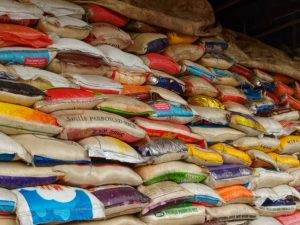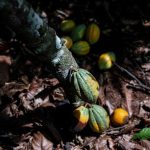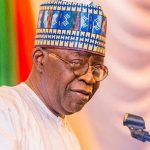

The Nigerian Customs Service has confirmed that rice remains a regulated import commodity. This is despite the astronomical food inflation in the country and the reversal of the previous administration policy, which forced importers of commodities to source for foreign exchange at the black market.
Rice is one of Nigeria’s most consumed food items. It is a staple that has become a luxury due to the closed border policy of the Buhari administration. Although rice is locally produced in Nigeria, the production level is insufficient to sustain a population of about 200 million. The ill-advised policy took the price of a bag of rice from N8,500 in 2014 to about N50,000 today.
The Cardoso-led Central Bank of Nigeria reversed the economy-sabotaging policy by lifting the ban on 43 import items, including rice. The idea was to complement the harmonization of the foreign exchange markets. This was done to ensure that local importers do not need to source for forex at the black market.
However, the Nigerian Customs Service has maintained the previous policy stance, which classifies rice as a restricted item. This means that it can be seized if imported through the land borders. Their argument, according to the NCS spokesman, Abdullahi Maiwada, is that there is no relationship between the removal of forex on restricted items and the fiscal policies of the government. He said rice remains a restricted item, and there has been no communication from the federal government that it is no longer so, hence the continued seizure.
Nigerians rejoiced when the CBN came up with the policy. They hoped it would directly lead to the reduction of the market price of rice. But the stance of the Customs has led to the price increasing even more, contributing to the already existing food inflation.
The current administration has shown a lack of cohesiveness so far. This is especially dangerous for the current state of the nation’s economy. In light of all of these, the Presidency must step in to establish order. The interest of Nigerians who are at the mercy of public institutions having a policy war instead of serving them must be protected.


Read: NDLEA Mandates Drug Test On Nigerian Students
About The Author
Related Articles
Tinubu Follows Gumi’s Lead as Nigeria Signs Turkey Defence Deal, Fueling Speculation Over Who Really Controls the Country’s Security Policy
Nigeria’s diplomatic and security strategy is once again under scrutiny after a...
ByWest Africa WeeklyJanuary 28, 2026Burkina Faso President Ibrahim Traoré Reviews 2025 Achievements, Sets Ambitious Agenda for 2026
Burkina Faso’s President, Ibrahim Traoré, has described 2025 as a year of...
ByWest Africa WeeklyJanuary 28, 2026Mali Says Reports of New Three-State Sahel Currency Are False but Talks Continue on Economic Integration
Mali’s government has rejected claims that it and its neighbours, Burkina Faso...
ByWest Africa WeeklyJanuary 28, 2026CBN Upgrades Opay, Moniepoint, Kuda and Others to National Licences
The Central Bank of Nigeria has upgraded the operating licences of several...
ByWest Africa WeeklyJanuary 28, 2026











